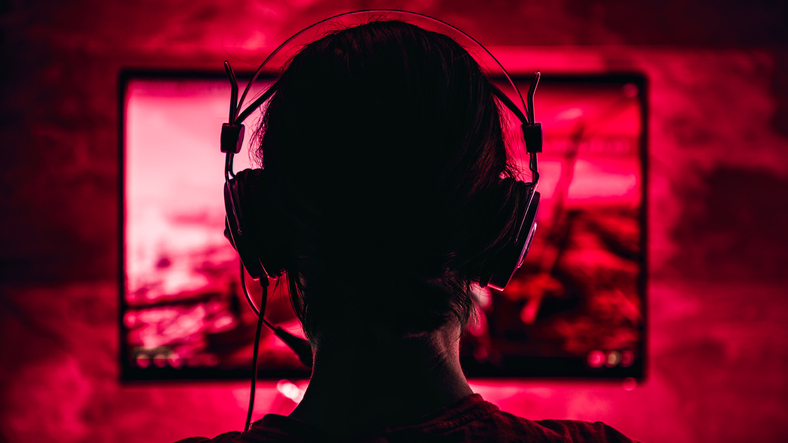
Video game addiction has been the subject of contentious debate, and many studies have examined its effects. Some are positive. In fact, gamers can experience an improvement in certain cognitive skills, like parallel processing and spatial reasoning (Greenfield, 1984). However, a small minority of gamers can develop video game addiction.
According to the World Health Organization’s list of International Classification of Diseases, video game addiction is described as a gaming disorder, “characterised by a pattern of persistent or recurrent gaming behaviour … [that] results in marked distress or significant impairment in personal, family, social, educational, occupational, or other important areas of functioning.” (2020). It becomes important to focus on these disruptive aspects when identifying addiction.
In order to understand more on this disorder, we examine the issue more closely below.
Understanding Video Gaming Addiction Through Research
It should be noted that some research indicates that video game addiction is not widely spread among gamers. In one six-year study, only around 10% of gamers showed signs of pathological video gaming, or gaming addiction—with these individuals showing “higher levels of depression, aggression, shyness, problematic cell phone use and anxiety by emerging adulthood” (Brigham Young University, 2020). The remaining 90% was comprised of 72% adolescents who displayed very low symptoms of addiction, and 18% who showed moderate symptoms (Brigham Young University, 2020).
Studying dopamine release in response to certain behavioural tasks can help with understanding video game addiction. It is reported that playing video games can trigger an increase of dopamine, which can be linked to various “motor, reward-related and cognitive functions” (Egerton et al., 2009). The connection between video games and dopamine can be further analyzed through PET neuroimaging studies, which indicate that the dopamine/serotonin increase can serve as an “underl[ying] mechanism for loss of control and compulsive behaviour in internet gaming disorder subjects” (Tian et al., 2014).
Taking into account these studies can help those in counsellor training gain better insight into video game addiction. Looking at the effects and symptoms can help contextualize the disorder, revealing any shared “predisposing factors” linked with other behavioural or substance-related addictions—possibly indicating addiction syndrome (Kuss et al., 2018).

Why Knowing About This Addiction Is Relevant to Those Taking Counsellor Training
As professional counsellors are trained to support people facing various issues, including addiction, it’s important to understand the various types of addictions they may encounter in the field. Those seeking a counsellor diploma will benefit from having some level of understanding of video gaming addiction so that they may be able identify a potential problem, and help affected individuals access the support they need to achieve meaningful recovery.

One counselling technique of interest in these cases might include motivational interviewing, providing a client-centred approach that aims to create behavioural change by resolving feelings of ambivalence.
According to a recent study on video game addiction and emotional states, individuals with a gaming disorder or addiction experience a “perceptional distortion” between happiness and pleasure (Gros et al., 2020). The study revealed that perceiving pleasure as happiness through longing and craving is associated with addiction and depression, while perceiving happiness as pleasure results in reward-seeking behaviours that support addictions (Gros et al., 2020). As these emotions are often confused by those with video game addiction, cognitive behaviour therapy (CBT) is another approach that may be of interest to counsellors.
CBT works as a form of talk therapy that allows clients to recognize their negative thought patterns and develop better ways to overcome them. By using this counselling approach, those with video game addictions might be assisted in exploring these confused emotions—providing them with skills and strategies to improve their behaviour and response to addictive activities. Using such an approach might “enable problematic gamers to explore the motives that lead them to abuse of play” (Gros et al., 2020). By developing integrated case management systems and employing the Motivational Interviewing (MI) and CBT methods among other approaches, professional counsellors can help to make a difference to those affected by this disorder.
Are you interested in helping others by pursuing a career in professional counselling?
Contact Rhodes Wellness College to learn more about our counsellor courses!
Works Cited
Brigham Young University. (2020, May 13). Is video game addiction real?. ScienceDaily. Retrieved January 14, 2021 from www.sciencedaily.com/releases/2020/05/200513143803.htm
Egerton, A., Mehta, M. A., Montgomery, A. J., Lappin, J. M., Howes, O. D., Reeves, S. J., Cunningham, V. J., & Grasby, P. M. (2009). The dopaminergic basis of human behaviors: A review of molecular imaging studies. Neuroscience and biobehavioral reviews, 33(7), 1109–1132. https://doi.org/10.1016/j.neubiorev.2009.05.005
Greenfield, P. M. (1984). Video Games. In Mind and Media : The Effects of Television, Video Games, and Computers (pp. 71-85). Harvard University Press.
Gros, L., Debue, N., Lete, J., & van de Leemput, C. (2020). Video Game Addiction and Emotional States: Possible Confusion Between Pleasure and Happiness?. Frontiers in psychology, 10, 2894. https://doi.org/10.3389/fpsyg.2019.02894
Kuss, D. J., Pontes, H. M., & Griffiths, M. D. (2018). Neurobiological Correlates in Internet Gaming Disorder: A Systematic Literature Review. Frontiers in psychiatry, 9, 166. https://doi.org/10.3389/fpsyt.2018.00166
Tian, M., Chen, Q., Zhang, Y., Du, F., Hou, H., Chao, F., & Zhang, H. (2014). PET imaging reveals brain functional changes in internet gaming disorder. European Journal of Nuclear Medicine and Molecular Imaging, 41(1388), 1397th ser. doi:https://doi.org/10.1007/s00259-014-2708-8
World Health Organization. (2020). 6C51 Gaming disorder. In International statistical classification of diseases and related health problems (11th ed.). https://icd.who.int/browse11/l-m/en#/http%3a%2f%2fid.who.int%2ficd%2fentity%2f1448597234









